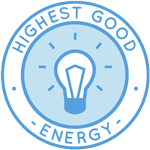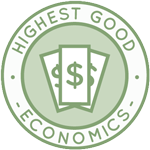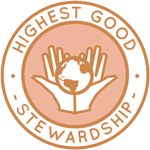Regenerative Sustainability Creation – One Community Weekly Progress Update #199
Regenerative sustainability creation is one way we as a species can begin to consciously steward our planet. Designing an open source and free-shared model for this will make it easier and more affordable. Combining the components of food, energy, and housing with sustainable and Highest Good approaches to education, for-profit and non-profit economic design, social architecture, fulfilled living, and global stewardship practices can also make it a better way of living than the way most people are living now.
- Here’s our project overview
- Here’s our world-change methodology
- Here’s how this becomes self-replicating
- Here’s how we are open source and free-sharing all the do-it-yourself designs

OUR MAIN OPEN SOURCE HUBS
Click on each icon to be taken to the corresponding Highest Good hub page.
One Community’s physical location will forward this movement as the first of many self-replicating teacher/demonstration communities, villages, and cities to be built around the world. This is the January 15th, 2017 edition (#199) of our weekly progress update detailing our team’s development and accomplishments:
Regenerative Sustainability Creation
One Community Progress Update #199
Here is the bullet-point list of this last week’s design and progress discussed in detail in the video above:
REGENERATIVE SUSTAINABILITY CREATION INTRO: @1:03
REGENERATIVE SUSTAINABILITY CREATION HIGHEST GOOD EDUCATION: @2:02
- Transferred all written content for the Play Lesson Plan to the website (see below)
- Behind the scenes: completed 100% of the written part of the Sharing Lesson Plan
- Completed the first 25% of the mindmap for the Cognition Lesson Plan (see below)
REGENERATIVE SUSTAINABILITY CREATION HIGHEST GOOD FOOD: @2:56
- Finished updating the anchor links and formatting the Food Bars page (see below)
REGENERATIVE SUSTAINABILITY CREATION HIGHEST GOOD HOUSING: @3:22
- Working with Ashwini Ramesh, we put another combined total of 15 hours into the crowdfunding campaign we are developing (see below)
- Further evolved last week’s main render from Guy Grossfeld for the Shipping Container Village (see below)
- Updated all associated web pages and 7 villages online book with the new version (see below)
- Continued working on the renders for the Communal Eco-shower Structures that are part of the Earthbag Village (see below)
- Adrienne Gould-Choquette finished her 4th week helping create the standardized AutoCAD layers and line weights template (see below)
- Dean Scholz continued helping us create quality Cob Village renders (see below)
- Guy Grossfeld created a new final render of the Front External View Looking East for the Cob Village (see below)
- Jiming Chen continued helping develop the Tree House Village (see below)
- Hamilton Mateca finished his 27th week helping with the Compressed Earth Block Village design details (see below)
- Zachary Melin continued developing the Tree House Village book (see below)
REGENERATIVE SUSTAINABILITY CREATION DUPLICABLE CITY CENTER: @6:18
- Made final edits to the render for the Duplicable City Center outside portion of the natural pool (see below)
- Continued developing the lighting and textures for the render perspective for the natural pool area inside the Duplicable City Center Social Dome.
- Dipti Dhondarkar continued with her 25th week of work on the lighting specifics for the City Center (see below)
- Jinxi Feng continued her research helping us create an in-depth laundry and dryer machine sustainability analysis (see below)
- Guy Grossfeld further developed the render for the City Center root cellar (see below)
- Haoxuan “Hayes” Lei and Shuna Ni continued their work on the City Center brace details (see below)
- Ramya Vudi and Shubham Agrawal continued their work on the energy infrastructure for the City Center (see below)
- Mike Hogan and Lucas Tsutsui da Silva began a new round of development of the Control and Automation systems layout (see below)
- Jin Yu joined the team and completed her first week working on the concrete foundation design and tutorial details for the Duplicable City Center (see below)
REGENERATIVE SUSTAINABILITY CREATION HIGHEST GOOD SOCIETY: @9:03
- Created a detailed list of next steps for developing the Highest Good Network (see below)
- Working with Ashwin Patil and Jennifer Zhou we completed another round of edits and launched the search engine for the Highest Good education component. We also continued development of the code needed for the Highest Good housing search engines for each village (see below)
REGENERATIVE SUSTAINABILITY CREATION SUMMARY: @9:28
- How you can most help us right now and how anyone can help
CLICK HERE IF YOU’D LIKE TO RECEIVE AN EMAIL EACH WEEK WHEN WE RELEASE A NEW UPDATE
YOU CAN ALSO JOIN US THROUGH SOCIAL MEDIA
ONE COMMUNITY WEEKLY UPDATE DETAILS
REGENERATIVE SUSTAINABILITY CREATION HIGHEST GOOD EDUCATION PROGRESS
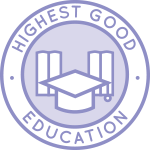 One Community is facilitating regenerative sustainability creation through Highest Good education that is for all ages, applicable in any environment, adaptable to individual needs, far exceeds traditional education standards, and more fun for both the teachers and the students:
One Community is facilitating regenerative sustainability creation through Highest Good education that is for all ages, applicable in any environment, adaptable to individual needs, far exceeds traditional education standards, and more fun for both the teachers and the students:
- Learn about the components: Education open source hub
- Learn how the components work together: How to use the Education for Life Program
This last week the core team transferred all of the written content for the Play Lesson Plan to the website, as you see here. This lesson plan purposed to teach all subjects, to all learning levels, in any learning environment, using the central theme of “Play” is now 100% completely written on our website.

Regenerative Sustainability Creation – Transferred 100% of Play Lesson Plan to Site ” Click to Visit
Behind the scenes, we completed 100% of the written part of the Sharing Lesson Plan.
We also completed the first 25% of the mindmap for the Cognition Lesson Plan, bringing it to 25% complete, which you see here:
REGENERATIVE SUSTAINABILITY CREATION HIGHEST GOOD FOOD PROGRESS
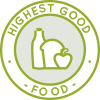 One Community is facilitating regenerative sustainability creation through Highest Good food that is more diverse, more nutritious, locally grown and sustainable, and part of our open source botanical garden model to support and share bio-diversity:
One Community is facilitating regenerative sustainability creation through Highest Good food that is more diverse, more nutritious, locally grown and sustainable, and part of our open source botanical garden model to support and share bio-diversity:
- Learn about the structures: Hoop House Hub | Aquapini & Walipini Open Source Hub
- See what we’ll be growing: Gardens & Hoop Houses | Large-scale Structures | Food Forest | TA
This last week the core team finished updating the anchor links and formatting the Food Bars page, bringing the page to ~10% completion:
REGENERATIVE SUSTAINABILITY CREATION HIGHEST GOOD HOUSING PROGRESS
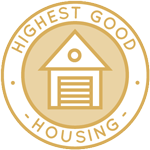 One Community is facilitating regenerative sustainability creation through Highest Good housing that is artistic and beautiful, more affordable, more space efficient, lasts longer, DIY buildable, and constructed with healthy and sustainable materials:
One Community is facilitating regenerative sustainability creation through Highest Good housing that is artistic and beautiful, more affordable, more space efficient, lasts longer, DIY buildable, and constructed with healthy and sustainable materials:
- Learn about: Our Upcoming Crowdfunding Campaign
- Learn about the different village models: 7 Sustainable Village Models
- Visit the open source portals for the first two: Earthbag Village OS Hub | Straw Bale Village OS Hub
The core team working with Ashwini Ramesh (Civil Engineer and Project Manager) put another combined total of 15 hours into the crowdfunding campaign we are developing. This week’s focus was behind-the-scenes review and continued development of AutoCAD drawings and continued writing and editing of the Sustainable Site Selection, Planning and Preparation GoogleDoc that also contains the Site Clearing, Preparation, and Maintenance details. You can see some of this work here:
The core team also further evolved last week’s main render from Guy Grossfeld (Graphic Designer) for the Shipping Container Village.
We then updated all associated web pages and 7 villages online book with the new version:
In addition to this, the core team continued working on the renders for the Communal Eco-shower Structures that are part of the Earthbag Village (Pod 1). This week we updated the central sink area with additional under sink storage units and we updated the shape/texture of the mirrors over the sinks.
Adrienne Gould-Choquette (Mechanical Engineer) also finished her 4th week helping create the standardized AutoCAD layers and line weights template. This week’s focus was further applying it to the Shipping Container Village (Pod 5) and adding what is needed to gather input from other disciplines.
Dean Scholz (Architectural Designer), continued helping us create quality Cob Village (Pod 3) renders. Here is update 51 of his work that continues focusing on lighting, texture and other aesthetic details inside the homes. In the Video portion of the blog you can see the progression of a series of 70 renders showing this development and finishing with his final 3 newest ones:

Regenerative Sustainability Creation – Continued Creating Quality Cob Village Renders ” Click to Visit
Adding details to Dean’s previous work, Guy Grossfeld (Graphic Designer) added people and nature elements to create this new final render of the Front External View Looking East for the Cob Village.
Jiming Chen (Designer with his Master’s in Architecture and BA in Engineering) also continued helping develop the Tree House Village (Pod 7). What you see here is his 10th week of this work focusing on test rendering a variety of different perspectives within the village.
Hamilton Mateca (AutoCAD and Revit Drafter and Designer) also finished his 27th week helping with the Compressed Earth Block Village (Pod 4) design details. This week’s focus was continued lighting details and further development of the external village specifics.
Zachary Melin (Graphic Designer) also continued developing the Tree House Village (Pod 7) book. What you see here is week 20 of this work that produced these two custom made 3D sections for page 56.
REGENERATIVE SUSTAINABILITY CREATION DUPLICABLE CITY CENTER PROGRESS
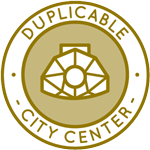 One Community is facilitating regenerative sustainability creation through a Duplicable and Sustainable City Center that is LEED Platinum certified/Sustainable, can feed 200 people at a time, provide laundry for over 300 people, is beautiful, spacious, and saves resources, money, and space:
One Community is facilitating regenerative sustainability creation through a Duplicable and Sustainable City Center that is LEED Platinum certified/Sustainable, can feed 200 people at a time, provide laundry for over 300 people, is beautiful, spacious, and saves resources, money, and space:
- Learn about this building and it’s function: Duplicable City Center Open Source Hub
This week the core team made final edits to this render for the Duplicable City Center outside portion of the natural pool.
And we continued developing the lighting and textures for the render perspective for the natural pool area inside the Duplicable City Center Social Dome.
And Dipti Dhondarkar, (Electrical Engineer) continued with her 25th week of work on the lighting specifics for the City Center. This week’s focus was finishing adding and updating the type of bulb details, watts per zone, and minimum lumens and lights details to the zone spreadsheet, as seen here.
Jinxi Feng (Environmental Consultant) also continued her research helping us create an in-depth laundry and dryer machine sustainability analysis. What you see here is her 17th week of behind-the-scenes work on this area of the project. This week’s focus was continued development of the data for the tutorial and adding details to the open source tool to help people understand how we came to our conclusions for comparing water and energy savings with different washers and dryers.
Guy Grossfeld (Graphic Designer) further developed the City Center root cellar render:
Haoxuan “Hayes” Lei (Structural Engineer) and Shuna Ni (Masters of Mechanical Engineering and Civil Engineering PhD) also continued their work on the City Center brace details. What you see here are the design specifics and completed calculation and measurement details necessary for us to now model this in 3D.
Ramya Vudi (Electrical Engineer) and Shubham Agrawal (Electrical Engineer) continued their work on the energy infrastructure for the City Center. This week’s work focused on an initial lifestyle schedule and evaluating different solar scenarios and the associated effects on battery and solar panel array sizing.
Mike Hogan (Automation Systems Developer and Business Systems Consultant) and Lucas Tsutsui da Silva (4th-year Computer Engineering Student) also began a new round of development of the Control and Automation systems layout. Here are pictures from the weekly development call where we focused on the root cellar, boiler room, and 1st floor details.
Jin Yu (Structural Engineering Designer) also joined the team and completed her first week working on the concrete foundation design and tutorial details for the Duplicable City Center. You can see a collage of some of this work here.

Worked on Concrete Foundation Design and Tutorial Details for Duplicable City Center – Click for Page
REGENERATIVE SUSTAINABILITY CREATION HIGHEST GOOD SOCIETY PROGRESS
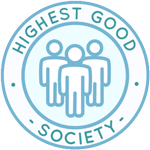 One Community is facilitating regenerative sustainability creation through a Highest Good society approach to living that is founded on fulfilled living, the study of meeting human needs, Community, and making a difference in the world:
One Community is facilitating regenerative sustainability creation through a Highest Good society approach to living that is founded on fulfilled living, the study of meeting human needs, Community, and making a difference in the world:
- Read the Highest Good society overview: Highest Good Society
- Learn about the model for fulfilled living and sharing: A Day in the Life
- Learn about the 4 economic models: RBE | For-profit | Non-profit | Entrepreneurship
- Learn about our open source community collaboration and management software: The Highest Good Network
This week the core team created a detailed list of next steps for developing the Highest Good Network, as seen here:
And, working with Ashwin Patil (Web Developer) and Jennifer Zhou (Web Designer), we completed another round of edits and launched the search engine for the Highest Good education component. We also continued development of the code needed for the Highest Good housing search engines for each village.
AND WE PRODUCED THIS WEEKLY UPDATES BLOG – CLICK HERE TO SUBSCRIBE
FOLLOW ONE COMMUNITY’S PROGRESS (click icons for our pages)
INVESTOR PAGES
GET INVOLVED
CONSULTANTS | WAYS ANYONE CAN HELP | MEMBERSHIP
CLICK HERE FOR ALL PAST UPDATES
WHAT ONE COMMUNITY IS CREATING
One Community is creating a place to grow together and change the world together through regenerative sustainability creation. We are creating a space that helps each other live in integrity with each other and the planet as we strive to be the greatest versions of ourselves. We do this by harmoniously respecting each other, nature, and the rest of our one shared planet.
Our goal is to demonstrate what we feel is the most sustainable, healthy, and fun environment we can create. A place based on compassion, kindness, and collaboration. This replicable community will serve as an example for what is possible.
Throughout our design process we are open sourcing and free-sharing everything needed for construction and replication. This includes what we call “Highest Good” approaches to food, energy, housing, education, for-profit and non-profit economics design, social architecture, fulfilled living, stewardship practices and more. We are creating these resources for implementation as individual components or complete developments called teacher/demonstration hubs. These hubs will help launch additional hubs as awareness and knowledge growth on regenerative sustainability creation.
BUILDING THE FIRST OF MANY
One Community will be the first teacher/demonstration hub. It will function as an experiential-learning model that facilitates mass participation to address humanity’s most pressing challenges through: A replicable model for expansion, building seven self-sufficient village/city prototypes, becoming the world leader in open-source sustainability solutions, and evolving and expanding ALL aspects of sustainable living.
 One Community
One Community